Love and Death (1975)
“Isn’t all mankind ultimately executed for a crime it never committed?”
|
Synopsis: |
|
Genres, Themes, Actors, and Directors:
Response to Peary’s Review: Interestingly, critical opinions appear to be divided on this early-ish Allen comedy, made after a string of early slapstick favorites — including Take the Money and Run (1969), Bananas (1971), Everything You Always Wanted to Know About Sex *But Were Afraid to Ask (1972), and Sleeper (1973) — and just before Annie Hall (1977). Most agree with Peary that it’s not among his best work, though Jack Purdy of the Baltimore City Paper believes it’s under-rated, and referred to it as Allen’s “most pitch-perfect broad comedy”. While Sleeper (1973) is my personal favorite of Allen’s early work, Love and Death remains a unique delight in its pointed satire of not only Great Russian Literature but the deep philosophical themes of Bergman’s oeuvre (which is explicitly referenced), as well as Eisenstein’s The Battleship Potemkin (1925) (watch for an iconically shattered eyepiece in one battle sequence). Allen’s screenplay moves at such a fast clip that you’re sure to remain engaged throughout; there are so many cleverly conceived scenarios, characters, interactions, and one-liners that even if a few fall short, the rest easily carry the day. My favorite visual sequence: Allen’s “Boris” flirts openly with a gorgeous countess at an opera house. Redeeming Qualities and Moments:
Must See? Categories
Links: |
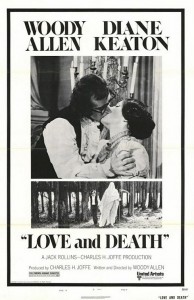
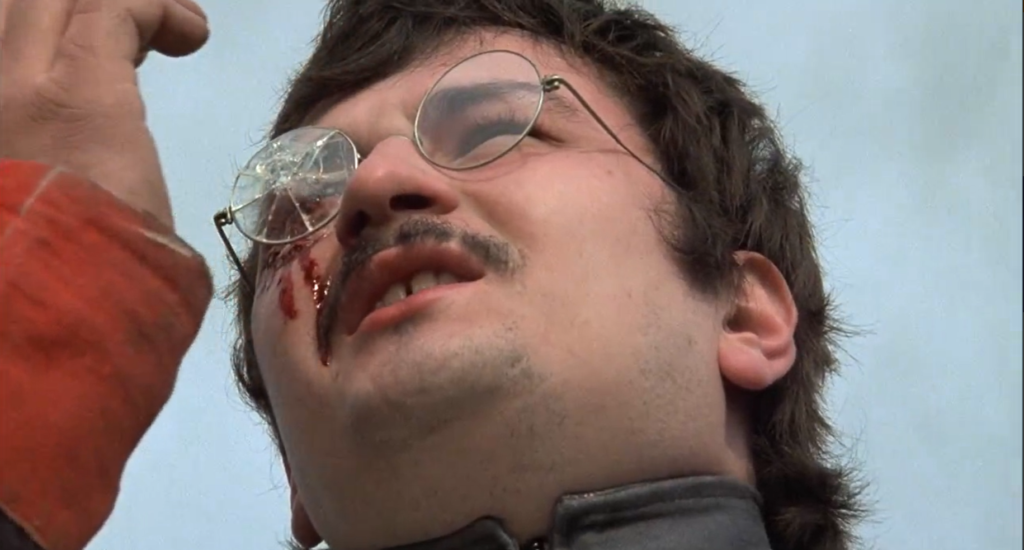
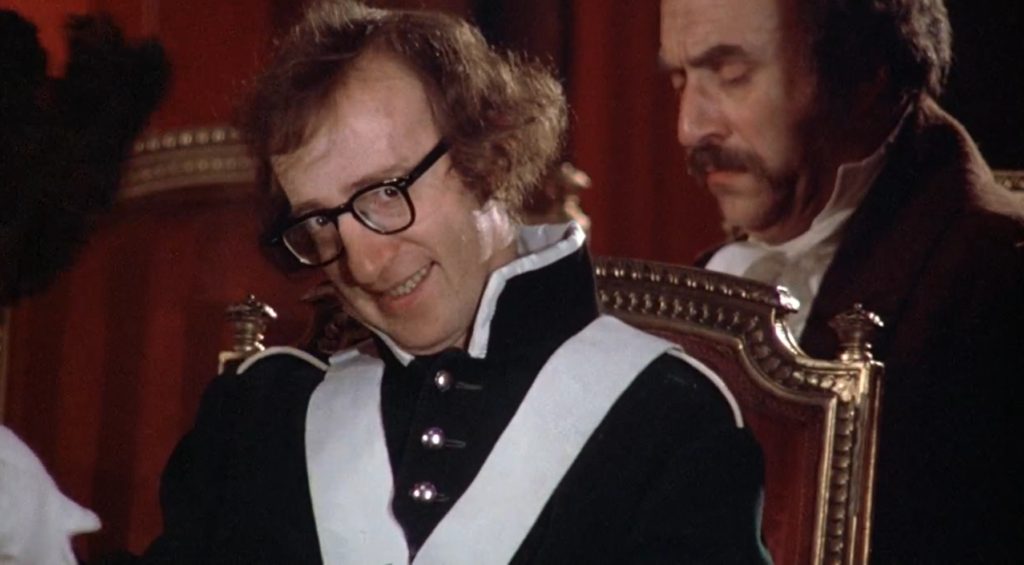
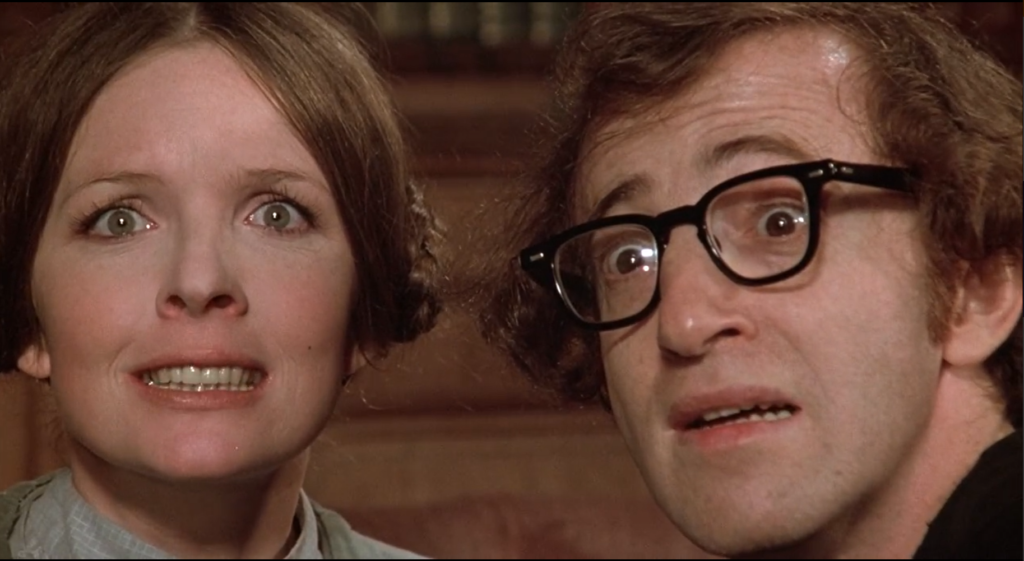
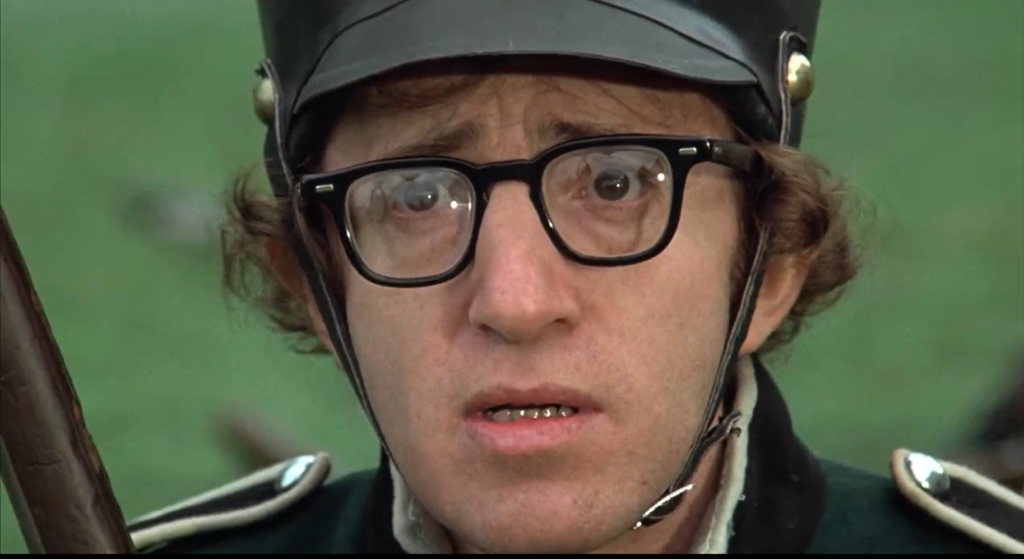
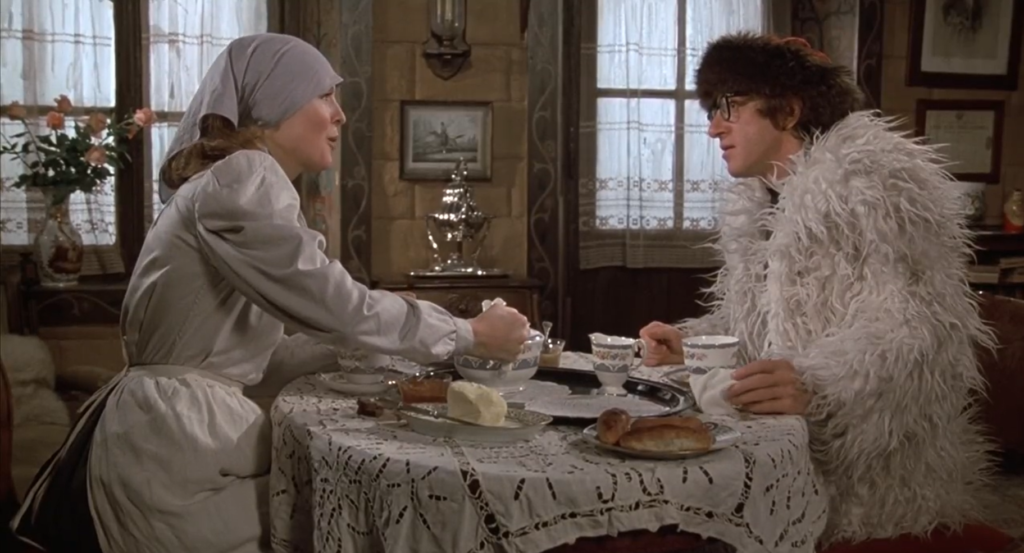
One thought on “Love and Death (1975)”
A must. A most unique (and, for my money, Allen’s best) comedy.
I’m rather startled by the overall critical assessment quoted in the review – mainly since I think ‘L&D’ is one laugh-riot from start to finish. I’ve seen this film many times and, even though I know all of the jokes well, each time I see it, it’s new all over again for me and I laugh just as much. Perhaps the premise – for me, anyway – is just such a rich idea. It can certainly help if you have a love of Russian literature and are a fan of Ingmar Bergman films. But, honestly, neither of those are real prerequisites. The cleverness here just doesn’t stop. It’s 82 minutes of non-stop wit and comic timing.
As well, among Allen’s early films, it’s the one filmed in the most exquisite manner – by Ghislain Cloquet (who filmed the work of various European directors – i.e., Jacques Becker’s ‘Le Trou’ – and would go on to film Polanski’s ‘Tess’). ‘L&D’ looks great – and it’s backed-up with marvelously detailed production and costume design…all of which (along with a score by Sergei Prokofiev) adds great texture and charm to Allen’s parody.
Allen was very smart to use authentic-looking Russian types for most of the supporting cast; the result is effective. (I also like Jessica Harper’s brief but effective appearance near the end of the film. Allen would use her again wonderfully in my favorite ‘drama’ of his, ‘Stardust Memories’.) Most surprisingly, Allen himself delivers one of his best acting turns. But he is very ably assisted by Keaton. I simply love her in this role, as she is totally invested in the atmosphere of what she’s playing. I particularly enjoy it when Allen gives her a mouthful to say – none of which makes any sense – and she carries it off with flying colors:
Sonja: Judgment of any system, or a priori relationship or phenomenon exists in an irrational, or metaphysical, or at least epistemological contradiction to an abstract empirical concept such as being, or to be, or to occur in the thing itself, or of the thing itself.
Boris: Yes, I’ve said that many times.
and:
Sonja: To love is to suffer. To avoid suffering one must not love. But then one suffers from not loving. Therefore, to love is to suffer; not to love is to suffer; to suffer is to suffer. To be happy is to love. To be happy, then, is to suffer, but suffering makes one unhappy. Therefore, to be unhappy, one must love or love to suffer or suffer from too much happiness. I hope you’re getting this down.
I really can’t praise this movie enough. It’s one of those I would definitely think to watch if I ever felt depressed, because it would likely lift me out of where I was and move me into a warm shelter of playful, existential ridiculousness.